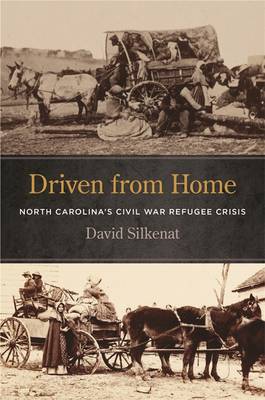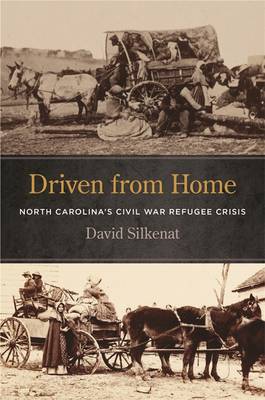
- Retrait gratuit dans votre magasin Club
- 7.000.000 titres dans notre catalogue
- Payer en toute sécurité
- Toujours un magasin près de chez vous
- Retrait gratuit dans votre magasin Club
- 7.000.000 titres dans notre catalogue
- Payer en toute sécurité
- Toujours un magasin près de chez vous
Description
Examining refugees of Civil War-era North Carolina, Driven from Home reveals the complexity and diversity of the war's displaced populations and the inadequate responses of governmental and charitable organizations as refugees scrambled to secure the necessities of daily life. In North Carolina, writes David Silkenat, the relative security of the Piedmont and mountains drew pro-Confederate elements from across the region. Early in the war, Union invaders established strongholds on the coast, to which their sympathizers fled in droves. Silkenat looks at five groups caught up in this floodtide of emigration: enslaved African Americans who fled to freedom; white Unionists; pro-Confederate whites--both slave owners (who often forced their slaves to migrate with them) and non-slave owners; and young women, often from more besieged areas of the South, who attended the state's many boarding schools. From their varied experiences, a picture emerges of a humanitarian crisis driven by mobility, shaped by unprecedented economic pressures and disease vectors, and exacerbated by governments unwilling or unable to provide meaningful relief.
For anyone seeking context to current refugee crises, Driven from Home has much to say about the crushing administrative and logistical challenges of aid work, the illusory nature of such concepts as home fronts and battle lines, and the ongoing debate over links between relief and dependence.Spécifications
Parties prenantes
- Auteur(s) :
- Editeur:
Contenu
- Nombre de pages :
- 304
- Langue:
- Anglais
- Collection :
Caractéristiques
- EAN:
- 9780820349466
- Date de parution :
- 15-10-16
- Format:
- Livre relié
- Format numérique:
- Genaaid
- Dimensions :
- 152 mm x 229 mm
- Poids :
- 612 g







